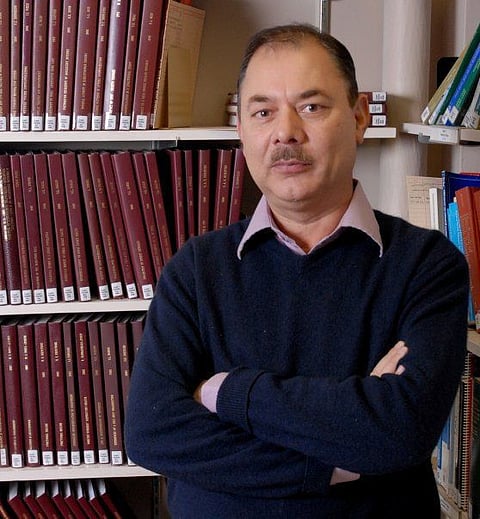One in three South Asian kids in Al Ain depressed, says study
Research also reveals emotional abuse and neglect

Abu Dhabi: Nearly a third of all South Asian students in Al Ain aged 12 to 18 years report being depressed, as do in five Emirati students of the same age group, a study has found.
Addressing medical professionals, researcher Dr Syed Shah, professor at the UAE University’s College of Medical and Health Sciences, called for further research into the high prevalence and causes of this self-reported depression.
“We surveyed a representative sample of 518 students from four randomly selected schools in Al Ain, and a high proportion of students indicated that they were depressed, as measured by Beck’s self-reported scale. We need to look into why this is the case, especially as our study also received reports of emotional abuse and neglect,” Dr Shah said.
He was speaking at the Abu Dhabi International Mental Health conference, a three-day forum in the capital that explored challenges and advances in the treatment of mental health. Dr Shah’s was one of many studies presented at the conference.
Reports of abuse
The project began in 2014 and delved into student’s feelings of emotional, physical and overall security and wellness. Among the respondents, 61.2 per cent were girls, whereas 38.8 per cent were boys.
While self-reported depression was high among South Asian and Emirati students, only 10.5 per cent of Arab students, and 12.8 per cent of Western students indicated that they were depressed.
The survey also looked into instances of abuse and neglect within the past year, and one in every three students reported experiencing instances of emotional abuse, such as verbal abuse and threats of maltreatment. More than 12 per cent of the students surveyed also reported experiencing some form of physical abuse, such as being pushed, grappled, choked, spanked or bitten. Another 12.1 per cent of the respondents also reported neglect in which they felt that their provision of food, medical care or security was threatened.
“Many children who reported emotional abuse and neglect also showed high rates of depression and low self-esteem, so we cannot afford to ignore these incidents,” Dr Shah said.
Breakdown by ethnicity
When taken separately in terms of ethnic groups, reports of physical abuse were generally low at about 12 per cent among all Emirati, Arab and Western students, and 16.7 per cent among all South Asians. But about one in every three South Asian, Arab and Western students said they had experienced emotional abuse, and the proportion was even higher among Emirati students.
“Ours was a prevalence study, and we’ve seen that these issues exist. Without looking into these matters further, policies cannot be designed to resolve them,” Dr Shah said.
The results of Dr Shah’s study hark back to Cartoon Network MENA Survey 2019, which was reported by Gulf News on Tuesday. In it, 85 per cent of UAE parents reported that their children aged six to 12 years is being bullied, or has been in the past.



![Social media claims of cancellations dismissed; official updates to be shared through authorised channels. [Illustrative image]](http://media.assettype.com/gulfnews%2F2025-11-15%2Fx2mp12df%2Fexam.jpg?w=320&auto=format%2Ccompress&fit=max)